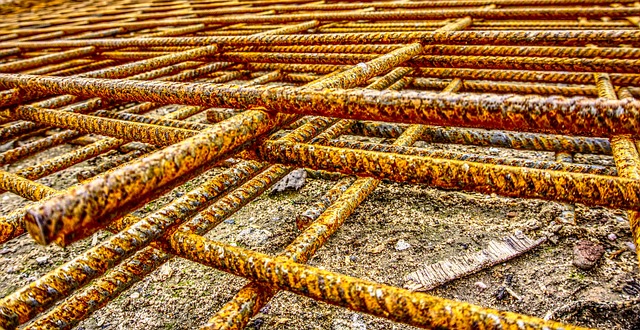Residential foundation repair is a crucial but often overlooked aspect of home maintenance. A comprehensive Foundation Inspection identifies structural issues like cracks, settlement, and uneven floors caused by various factors. Early detection through visual inspections, advanced tools (moisture meters, ground-penetrating radar), and soil testing prevents costly repairs. Repairs range from minor adjustments to extensive structural work, with guarantees ensuring quality and longevity. Regular annual Foundation Inspections are vital for proactive maintenance, identifying potential issues before they escalate.
Residential foundation repair is a crucial aspect of home maintenance, ensuring structural integrity and longevity. This comprehensive guide delves into the essentials of understanding and addressing foundation issues. We explore common signs of damage, emphasize the value of professional inspections, and review various repair techniques.
Choosing the right contractor is key; learn what to look for when selecting a reliable company. Moreover, discover the benefits of guaranteed services, ensuring peace of mind and optimal home stability post-repair.
Understanding Residential Foundation Repair: The Basics

Residential foundation repair is a crucial aspect of home maintenance that often goes unnoticed until an issue arises. It involves assessing and addressing structural damage or instability in a house’s foundation, which serves as its primary support system. A thorough foundation inspection is the first step, allowing professionals to identify problems like cracks, settlement, or uneven floors caused by various factors such as soil conditions, poor construction, or shifting earth.
During an inspection, experts examine the exterior and interior of the foundation, looking for signs of damage or potential issues. They may use advanced technology, including moisture meters and ground-penetrating radar, to assess the scope of the problem and determine the best course of action. Understanding these repairs is essential for homeowners as it guarantees the long-term stability and safety of their residence.
When to Know You Need a Foundation Inspection

Many homeowners often overlook the signs that indicate their house’s foundation may need repair, assuming everything is structurally sound. However, it’s crucial to recognize certain red flags that could point to more significant issues below the surface. One of the most critical times to consider a foundation inspection is when you notice uneven floors or walls. This can be as simple as doors or windows not closing properly or tiles on your floor appearing distorted—all potential indicators of a problem with your home’s base.
Additionally, cracks in the foundation walls or ceiling are never normal and warrant immediate attention. While some cracks may simply appear due to natural settling, others could signal more severe structural damage, especially if they are widening over time. If you experience frequent water seepage in your basement or notice that your foundation is sinking, heaving, or shifting, these are clear indicators that a professional foundation inspection is long overdue.
Common Signs of Foundation Damage

Many homeowners overlook the signs of foundation damage, often due to its subtle nature. However, early detection is crucial for effective and affordable repair. Common indicators include visible cracks in walls or floors, uneven doors or windows, and slanted or leaning walls. These issues could be a result of settling, shifting soil, or poor initial construction. A comprehensive foundation inspection is essential to identify these problems before they lead to more severe structural damage.
During an inspection, professionals look for signs of water intrusion, which can cause heave or settlement, as well as structural instability. By addressing these issues promptly, homeowners can avoid costly repairs in the future and ensure their family’s safety and comfort.
The Importance of a Comprehensive Foundation Assessment

A comprehensive foundation assessment is an indispensable first step in any residential foundation repair process. It involves a detailed examination of your home’s structural base, identifying potential issues that might go unnoticed during routine inspections. This meticulous process includes various methods such as visual inspection, non-invasive technologies, and soil testing to gauge the stability and integrity of your foundation.
During this assessment, trained professionals will look for signs of settlement, cracks, or unevenness, which could indicate larger structural problems. By addressing these issues early on, homeowners can avoid more costly repairs in the future. Moreover, a thorough foundation inspection comes with the added benefit of providing a guarantee, ensuring peace of mind and confirming that your investment is secure.
Types of Foundation Repair Techniques

When it comes to residential foundation repair, several techniques are employed based on the specific issue and structure. The first step is always a thorough foundation inspection to identify the root cause of problems like cracks, settling, or shifting. Once identified, repairs can range from minor adjustments to more extensive structural work.
For smaller issues, techniques like carbon fiber wrapping or polymer injection can be used to reinforce and stabilize existing foundation walls. These methods are effective for preventing further damage and providing a long-lasting solution. In cases of severe foundation problems, such as significant settling or uneven floors, more intensive measures like piering (including foundation piers or push piers) or underpinning might be required. These advanced techniques aim to realign the foundation and provide a stable base for the structure.
Choosing the Right Foundation Repair Company: What to Look For

When considering residential foundation repair, selecting the right company is paramount. Start by ensuring they offer a comprehensive foundation inspection to accurately assess the issue and its extent. Reputable firms will employ advanced diagnostic tools and methods to identify problems like settlement, cracks, or uneven floors. This step is crucial as it determines the most effective and cost-efficient repair solutions.
During your search, look for companies with proven experience, positive customer reviews, and a wide range of services. A guarantee on their work is also essential, offering peace of mind that the repairs will stand the test of time. Check if they provide transparent pricing, as this reflects their professionalism and ensures you understand the costs involved in restoring your home’s foundation.
Benefits of a Guaranteed Foundation Repair Service

When it comes to residential foundation repair, a guarantee is an invaluable asset for homeowners. It offers peace of mind and ensures that any repairs made are of high quality and will stand the test of time. With a guaranteed service, you can trust that the issues identified during a comprehensive foundation inspection will be effectively addressed, providing long-lasting stability to your home.
This type of assurance is particularly beneficial as it allows homeowners to avoid costly future repairs. By investing in a guaranteed foundation repair, you protect your property from further damage and potential structural issues, which can often arise from hidden problems beneath the surface. It’s a proactive approach that ensures the integrity of your home’s foundation for years to come.
Post-Repair Maintenance: Ensuring Longevity and Stability

After a residential foundation repair, proper maintenance is key to ensuring the longevity and stability of your home’s structure. Regular inspections are crucial to identify any potential issues early on. A thorough foundation inspection involves assessing the condition of the walls, floors, and any visible cracks or signs of movement. This includes checking for moisture intrusion, which can indicate underlying problems.
By maintaining a consistent inspection routine, homeowners can catch minor issues before they turn into major repairs. It’s recommended to have a professional inspect your foundation at least once a year. This proactive approach allows for timely intervention and prevents costly future repairs, guaranteeing the stability and safety of your home for years to come.
